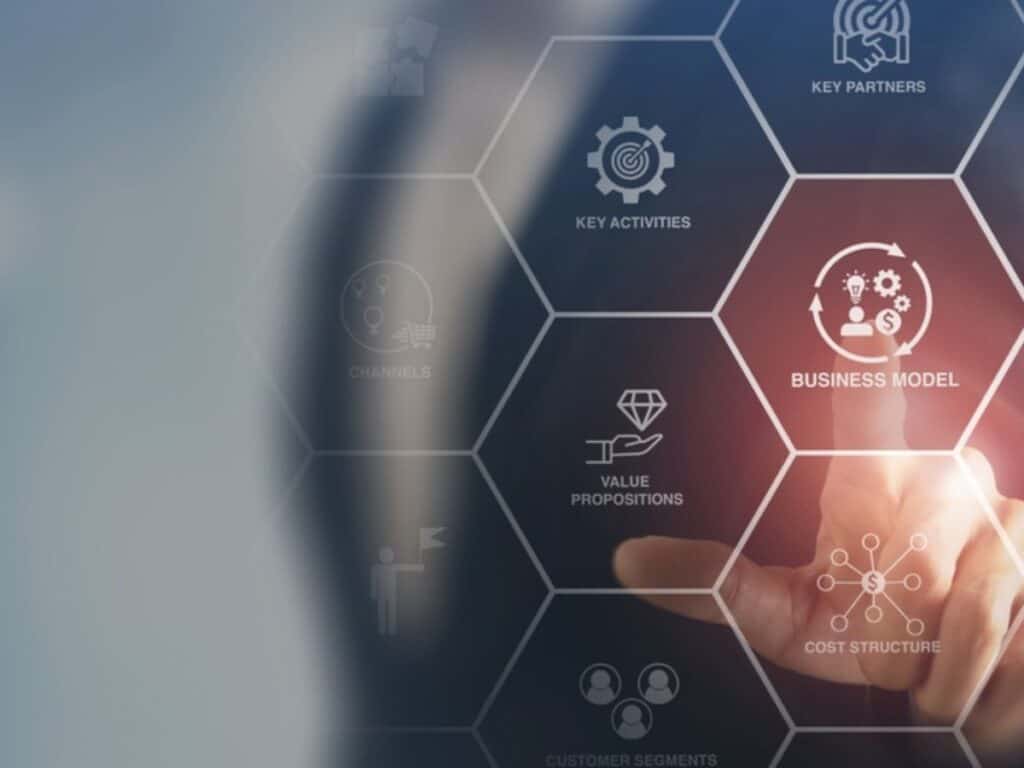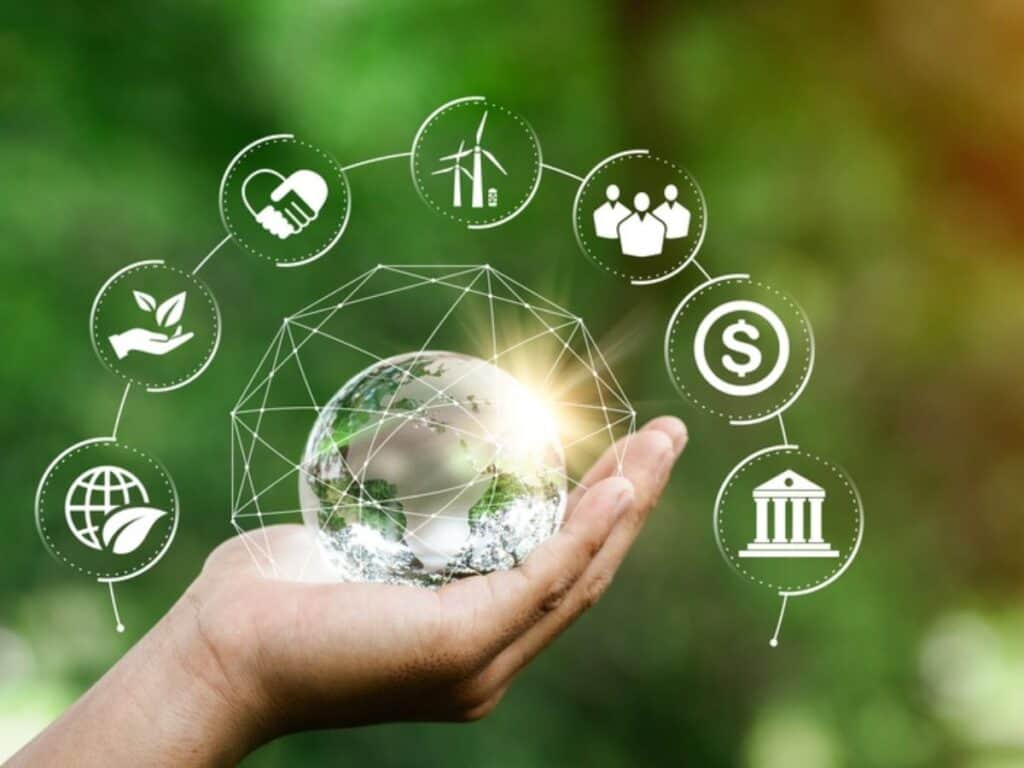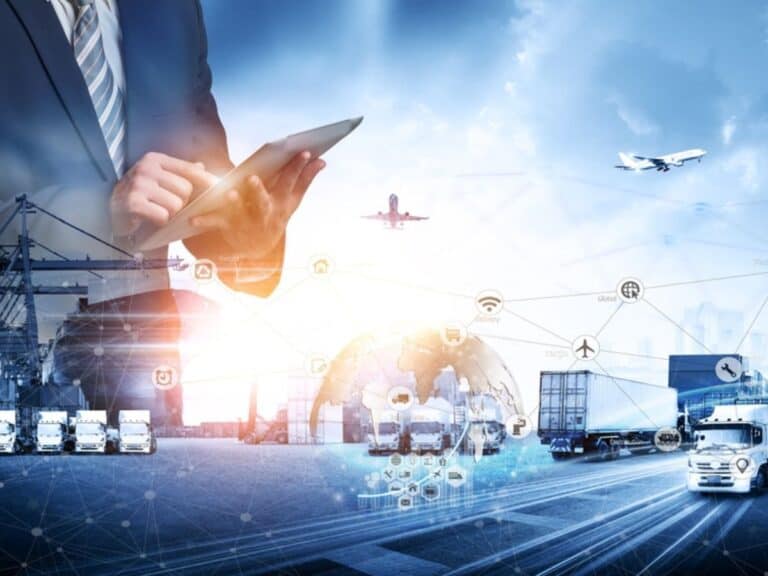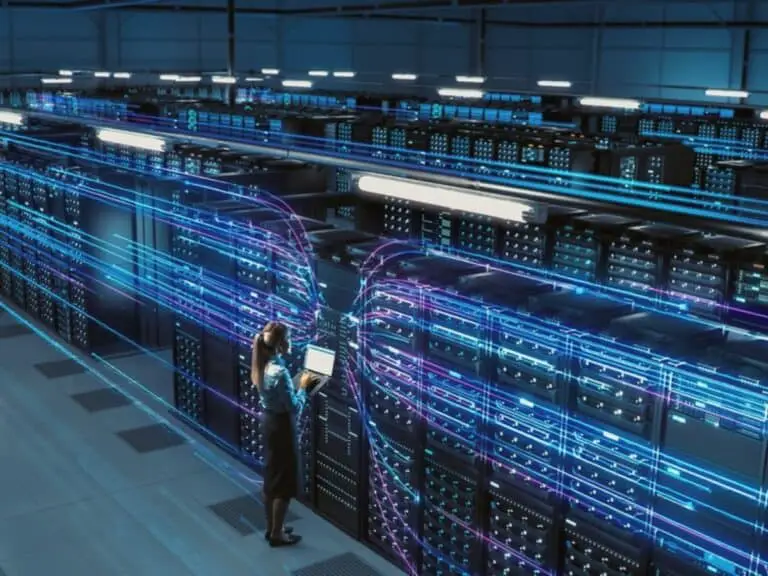The Future of Business: 155 Innovative Ideas Shaping 2024 Onwards
Business of the future evolves quickly, influenced by a whirlwind of technological advancements, changing business models, and shifting consumer expectations.
The future of business is being shaped by 155 innovative ideas that will have a profound impact on business practices starting from 2024 and beyond. In this era of change, exploring innovative ideas is the best thing to do if you want your businesses to stay ahead.
Curious to know more? These 155 innovative ideas have already impacted business practices this year and will continue for years to come.
Technological Advancements
According to Harvard Business Review, business of the future in the tech industry was more than booming in 2023.
The tech industry’s total revenue has grown from $600 billion to more than $6 trillion in the last 30 years. This statistic means there’s a significant new generation of companies and a whole lot more market potential.
Insight Into Technological Trends
The rapid changes in technology have reshaped business of the across all industries imaginable. Now there’s many more opportunities for innovation that were unimaginable in the past. For instance, AI and machine learning are not only optimizing operations but also powering analytics that can predict future market trends and consumer behaviors with next-level precision.
The Internet of Things (IoT) helps systems and devices to improve decision-making, and blockchain technology is a trend that revolutionizes security and transparency in transactions. These trends are helping companies build trust and reliability across various sectors.
Quantum computing is pushing the limits by creating solutions to complicated problems that conventional computers struggle to handle. Plus, Virtual Reality and Augmented Reality allow for immersive experiences that help companies engage with customers and train employees.

Your business can take advantage of these current technological trends in 2024:
- AI and machine learning are advancing how businesses run their operations.
- The IoT is transforming how we collect and utilize data, automating many tasks.
- Blockchain technology provides secure and transparent transactions across various industries.
- 5G connectivity is ushering in faster, more reliable internet access for everyone.
- Quantum computing is solving complex problems that were previously beyond our capabilities.
- Virtual Reality and Augmented Reality are helping create immersive experiences that are changing how consumers and businesses interact.
- Edge computing is processing data quicker, enabling faster insights and decision-making.
- Cybersecurity measures are protecting our sensitive data and combating cyber threats.
- Autonomous vehicles are revolutionizing transportation and logistics, improving efficiency and safety.
- Robotics and automation are enhancing productivity and streamlining operations in manufacturing and services.
- Biotechnology is advancing healthcare and boosting agricultural productivity.
- Digital twins are simulating real-world processes to optimize performance.
- Cloud computing is providing scalable and flexible IT solutions to businesses.
- Advanced data analytics are empowering informed decision-making across industries.
- Natural Language Processing is improving communication between humans and machines.
- Wearable technology is enhancing convenience and productivity in the workplace.
- Drones are improving logistics, surveillance, and agricultural practices.
- 3D printing is revolutionizing production with on-demand manufacturing capabilities.
- Smart grids are enhancing energy distribution and efficiency.
- Bioinformatics is advancing medical research and personalized medicine.
- Neuromorphic computing is mimicking human brain functions to enable more advanced AI.
- Mixed reality is blending physical and digital worlds for enhanced interactions.
- Hyper-automation is integrating AI and automation to optimize workflows.
- Swarm intelligence is improving problem-solving through collective AI behavior.
- Holographic displays are creating interactive 3D visual experiences.
- Sentiment analysis is providing valuable insights into public opinion for better customer understanding.
- AI-driven cyber defense is proactively combating digital threats.
- Photonic computing is using light for faster and more energy-efficient processing.
- Voice-activated assistants are simplifying user interactions with technology.
- Smart fabrics are integrating technology into clothing for enhanced functionality.
Evolving Business Models
According to a 2015 business study, modern companies are actively reshaping their business models to cut costs and boost efficiency. They’re achieving this through outsourcing, innovative service delivery, and new organizational structures.
In 2024, businesses are witnessing a rapid evolution in their business models that are worth drawing inspiration from. These changes are driven by changing consumer behaviors, technological advancements, and global economic shifts —including influences from the past Covid pandemic.
How AI is Shaping Business Models
Companies increasingly embrace digital transformation, using AI and data analytics to optimize operations and personalize their customer’s experiences.
A Mckinsey survey shows that organizations’ use of generative AI has seen a significant rise, with an increase of 56% in 2021 to 72% by early 2024. The most notable growth in this adoption has been observed in professional services, including human resources, training, and research and development.
Working From Home is Growing in Popularity
The pandemic has sped up the shift to remote work, especially for organizations that rely on knowledge-based work.
This work-from-home transition offers some helpful advantages: lower real estate expenses, the opportunity to recruit global talent, reduced immigration barriers, productivity improvements, and flexibility for employees.
However, this shift also presents challenges, such as communication across time zones, sharing sensitive data, limited virtual social interaction, feelings of isolation, data risks, and decreased productivity. Businesses will have to weigh out the pros and cons.

Here are some other business models shaping business of the future:
- Subscription models generate recurring revenue and build customer loyalty.
- The Sharing Economy maximizes the use and accessibility of resources.
- Freemium models attract users with free services and monetize premium upgrades.
- The Gig Economy enables flexible, project-based work opportunities.
- Direct-to-consumer models strengthen brand-customer relationships and eliminate intermediaries.
- latform-Based Ecosystems facilitate interactions between diverse user groups.
- ial enterprises balance social impact and profitability.
- Pay-per-use models charge customers based on their usage frequency.
- Crowdsourcing taps into collective intelligence to drive innovation and solutions.
- Digital marketplaces connect buyers and sellers globally.
- Decentralized Finance provides financial services without traditional intermediaries.
- Microservices architecture enhances scalability and agility in software development.
- Virtual businesses operate entirely online, reducing overhead costs.
- Co-creation with customers involves them in product development for better alignment.
- Influencer-led businesses leverage social media influence for marketing.
- Pop-up shops create temporary, immersive brand experiences.
- Remote work models offer flexibility and access to global talent.
- Hybrid work environments combine remote and in-office work for flexibility.
- Community-supported models engage local support for growth.
- Localized production reduces transportation costs and supports local economies.
- Personalized subscriptions cater to individual preferences and needs.
- Circular economy models emphasize recycling and reusing resources.
- Inclusive business models ensure access and opportunity for diverse populations.
- On-demand services provide instant access to products and services.
- Franchise innovations offer new opportunities for business expansion.
- Strategic partnerships enhance capabilities and market reach.
- Virtual Reality businesses offer immersive experiences for various applications.
- AI-driven business models automate processes and enhance decision-making.
- Sustainable business models prioritize environmental and social responsibility.
- Global freelance networks connect skilled workers with employers worldwide.
Sustainability and Corporate Social Responsibility
Sustainability and corporate social responsibility (CSR) are super important parts of business strategies all around the world. Companies are realizing more and more the value of integrating sustainable practices and ethical considerations into their operations.
This shift in business of the future is impacted by growing awareness of environmental problems, the urgency of climate change, and the impact of business activities on society.
How Sustainability and CSR Promotes Economic Growth
Embracing greater inclusion and sustainability can drive growth by unlocking new demand and investment opportunities. Sustainable business practices, particularly in clean technologies, create promising prospects.
Fostering inclusion can significantly boost business growth. For instance, expanding access to healthcare could increase global GDP growth by 0.4% by 2040. Moreover, inclusion cultivates demand, with the burgeoning middle class emerging as a vital consumer base.
Employees Demand Sustainability and CSR in the Workplace
Today’s employees, especially younger ones, want their employers to openly address the social, political, and environmental issues that matter to them.
Many organizations have responded to this demand, only to become trapped in a cycle of constant public statements that are often unrelated to their organizational priorities or even clash with their political spending.
Businesses would be wise to reconsider how they determine their internal and external priorities and discussions — and, crucially, how to involve employees early in this process.

These ideas are shaping the business of the future in sustainability and CSR:
- Renewable energy adoption is powering sustainable business practices.
- Circular economy models minimize waste and maximize resource use.
- Sustainable supply chains ensure ethical and eco-friendly operations.
- CSR programs enhance corporate reputation and community trust.
- Green buildings reduce environmental impact and operational costs.
- Carbon neutrality goals drive businesses towards zero emissions.
- Zero waste initiatives promote efficiency and environmental responsibility.
- Ethical sourcing supports fair labor practices and sustainability.
- Social impact investing fosters community development and positive change.
- Biodiversity conservation protects ecosystems and promotes sustainability.
- Sustainable packaging reduces waste and environmental footprint.
- Energy efficiency programs lower costs and conserve resources.
- Water conservation initiatives ensure sustainable water use.
- Eco-friendly products meet consumer demand for sustainability.
- Green transportation solutions reduce emissions and improve efficiency.
- Sustainable agriculture practices enhance food security and reduce impact.
- Community engagement programs build trust and support local development.
- Employee well-being programs increase productivity and satisfaction.
- Diversity and inclusion initiatives drive innovation and equality.
- Fairtrade practices ensure equitable and sustainable trade.
- Environmental education programs raise awareness and drive action.
- Sustainable tourism balances economic growth with environmental protection.
- Green certifications validate and promote sustainable practices.
- Waste-to-energy projects convert waste into usable energy.
- Reforestation programs restore ecosystems and combat climate change.
- Sustainable fashion reduces environmental impact and promotes ethics.
- Carbon capture technologies mitigate climate change effects.
- Ethical AI ensures the responsible use of technology.
- Green marketing campaigns promote sustainable products and practices.
- Social entrepreneurship addresses societal challenges through innovative business solutions.
Customer Experience Transformation
Transforming customer experience is crucial for staying competitive. As technology evolves, consumer expectations are shifting towards more personalized, seamless, and interactive experiences.
Trends such as AI-powered support, augmented reality shopping, and hyper-personalized marketing are leading the charge in creating tailored experiences that meet individual customer preferences.
Omni-channel strategies and user-friendly mobile experiences ensure that consumers can engage with brands easily across differing touchpoints. Business of the future is leveraging customer data platforms and predictive analytics to determine customer needs and deliver proactive service to enhance their overall satisfaction.
AI as a Consumer Trend
Consumers have a mixed view of cutting-edge technology, particularly AI. 60% are excited about its potential, but 71% feel it’s advancing too quickly. The rapid growth of AI has doubled concerns among certain consumer groups in the US, such as cosmetics buyers, fast food consumers, and fitness enthusiasts.
Businesses across various industries need to navigate this complex sentiment by using detailed audience insights to understand specific consumer fears and interests. For example, movie watchers worry about AI’s impact on creativity, and while people with mental health conditions see potential benefits for therapy, none see AI as a replacement.
As AI becomes more integrated, brands must implement it thoughtfully and transparently, tailoring their approach to maintain consumer trust and address unique industry concerns.

These trends are shaping the business of the future in customer experience:
- Customer personalization tailors experience to individual customer preferences.
- Omni-channel strategies ensure seamless experiences across all channels.
- Customer journey mapping identifies key touchpoints for improvement.
- AI-powered support provides quick and efficient customer service.
- Experience-driven commerce creates memorable shopping experiences.
- Loyalty programs boost customer retention.
- Augmented Reality shopping offers interactive and immersive purchasing experiences.
- Virtual try-ons let customers visualize products before they buy.
- Interactive demos engage customers and help businesses showcase product features.
- Seamless mobile experiences enhance on-the-go accessibility.
- Customer feedback loops gather insights for continuous improvement.
- Implementing social media engagement fosters direct communication with customers.
- AI-driven insights inform personalized marketing strategies.
- Voice commerce simplifies shopping through voice commands.
- Hyper-personalized marketing delivers targeted marketing messages.
- In-store experience enhancements attract and retain customers.
- Real-time customer support resolves issues immediately, improving satisfaction.
- Customized subscription boxes cater to unique customer needs.
- Focusing on positive post-purchase experiences encourages repeat business.
- Community building strengthens brand loyalty and customer relationships.
- Customer data platforms consolidate information for better personalization.
- Predictive customer analytics anticipate customer needs and behaviors.
- Emotion AI detects customer emotions to enhance interactions.
- Contactless payments offer convenience and safety.
- Video commerce engages customers through visual content.
- Customer-centric innovation focused on customer needs drives satisfaction.
- Proactive customer service addresses issues before they arise.
- End-to-end customer experience management ensures consistent satisfaction.
- Self-service portals empower customers to solve issues independently.
- AI-enhanced UX/UI improves user experiences and satisfaction.
Regulation and Policy Landscape
The regulatory and policy landscape is evolving, impacting business operations and compliance requirements.
Achieving sustainability will require businesses to make substantial investments. For instance, the International Energy Agency forecasts that reaching net-zero emissions could demand nearly $5 trillion annually by 2030 and $4.5 trillion annually by 2050.
This annual cost equals approximately half of global corporate profits in 2019, or one and a half times the yearly increase in public debt over the preceding 15 years.
Further investments will be needed for decarbonizing agriculture, transportation, and other sectors, which could almost double this expenditure.

Business of the future in terms of regulations and policy landscapes includes these trends:
- Data privacy regulations protect user information and enhance trust.
- Environmental regulations drive sustainable business practices.
- Updated labor laws address the gig economy’s unique challenges.
- Trade policies and tariffs impact global business operations.
- Health and safety regulations ensure worker protection.
- Tax policies and incentives influence business investments.
- Cybersecurity regulations safeguard against digital threats.
- Intellectual property laws protect innovations and creations.
- Anti-Money Laundering (AML) regulations combat financial crimes and fraud.
- Consumer protection laws ensure fair business practices.
- Financial regulations maintain stability and integrity in markets.
- E-commerce regulations govern online transactions and services.
- Telemedicine regulations standardize virtual healthcare services.
- Renewable energy policies promote sustainable energy sources.
- Urban planning laws shape sustainable city development.
- Digital identity verification enhances online security.
- Blockchain regulations ensure secure and transparent transactions.
- AI ethics guide the responsible and fair use of technology.
- Cross-border data transfers protect privacy across borders.
- Supply chain transparency requirements ensure ethical sourcing.
- ESG reporting standards encourage responsible business practices.
- Online Content Moderation Policies: Content policies manage online information integrity.
- Space regulations govern commercial and scientific space activities.
- Biotech and genomics regulations ensure ethical advancements in genetics.
- Autonomous vehicle laws ensure safe integration on roads.
- Smart city policies guide technology integration in urban areas.
- Waste regulations promote sustainable disposal methods.
- Pandemic preparedness policies enhance response to health crises.
- Climate Change Legislation: Climate laws drive actions to mitigate environmental impact.
- Corporate governance reforms improve accountability and ethics.
- Social media advertising regulations ensure transparency on social platforms.
- Fintech regulations secure digital financial services.
- Renewable energy incentives support the adoption of renewable technologies.
- Ethical investment guidelines promote socially responsible funding.
- Sustainable Development Goals (SDGs) compliance aligns business with global sustainability goals.

Final Thoughts on the Future of Business
These 155 innovative ideas are shaping the business of the future, offering immense potential for transformation. By embracing these trends, companies can adapt to the ever-changing landscape and drive future success. The business of the future will be defined by adaptability, innovation, and a commitment to sustainability.
Want to learn more? Explore our blog for more innovative, up-to-date business insights.
DID YOU FIND THIS INFORMATION HELPFUL? Share the love on social.
Follow us on Pinterest & Instagram!
ANY OTHER BUSINESS ADVICE WE CAN WRITE ABOUT?

![]()








Just thinking about you gives me chills… come closer – https://rb.gy/es66fc?tuplew
“I’m curious to uncover what inspires you. Chat with me on https://rb.gy/44z0k7?tuplew !”